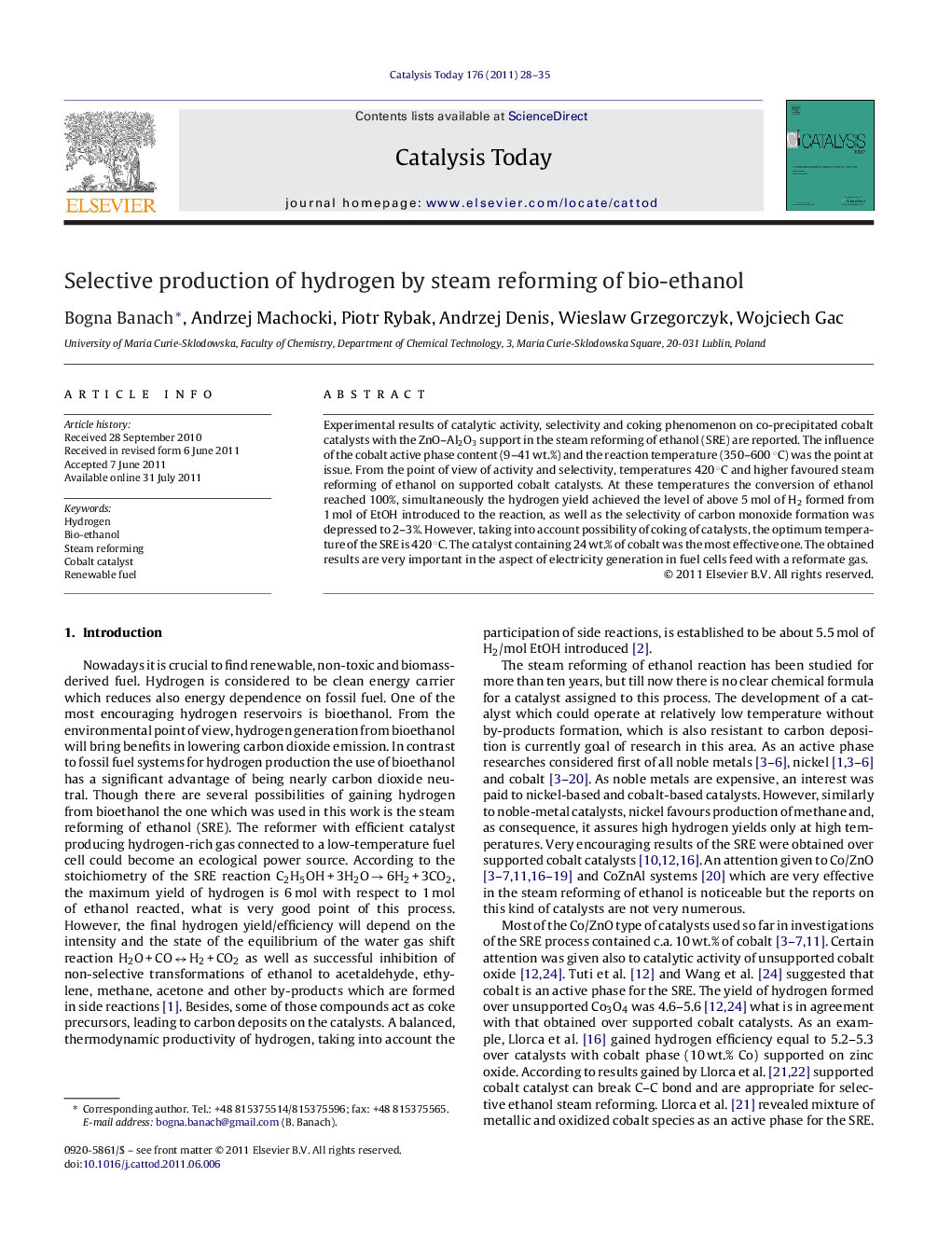| Article ID | Journal | Published Year | Pages | File Type |
|---|---|---|---|---|
| 55808 | Catalysis Today | 2011 | 8 Pages |
Experimental results of catalytic activity, selectivity and coking phenomenon on co-precipitated cobalt catalysts with the ZnO–Al2O3 support in the steam reforming of ethanol (SRE) are reported. The influence of the cobalt active phase content (9–41 wt.%) and the reaction temperature (350–600 °C) was the point at issue. From the point of view of activity and selectivity, temperatures 420 °C and higher favoured steam reforming of ethanol on supported cobalt catalysts. At these temperatures the conversion of ethanol reached 100%, simultaneously the hydrogen yield achieved the level of above 5 mol of H2 formed from 1 mol of EtOH introduced to the reaction, as well as the selectivity of carbon monoxide formation was depressed to 2–3%. However, taking into account possibility of coking of catalysts, the optimum temperature of the SRE is 420 °C. The catalyst containing 24 wt.% of cobalt was the most effective one. The obtained results are very important in the aspect of electricity generation in fuel cells feed with a reformate gas.
► Co/ZnO–Al2O3 as a catalysts for ethanol steam reforming. ► The influence of Co active phase content (9–41 wt.%) and the reaction temperature (350–600 °C) was the point at issue. ► 100% EtOH conversion and 5 mol of H2 formed from 1 mol of EtOH was reached. ► The optimum temperature for the steam reforming of ethanol process was 420 °C. ► The catalyst containing 24 wt.% of cobalt was the most effective one.
